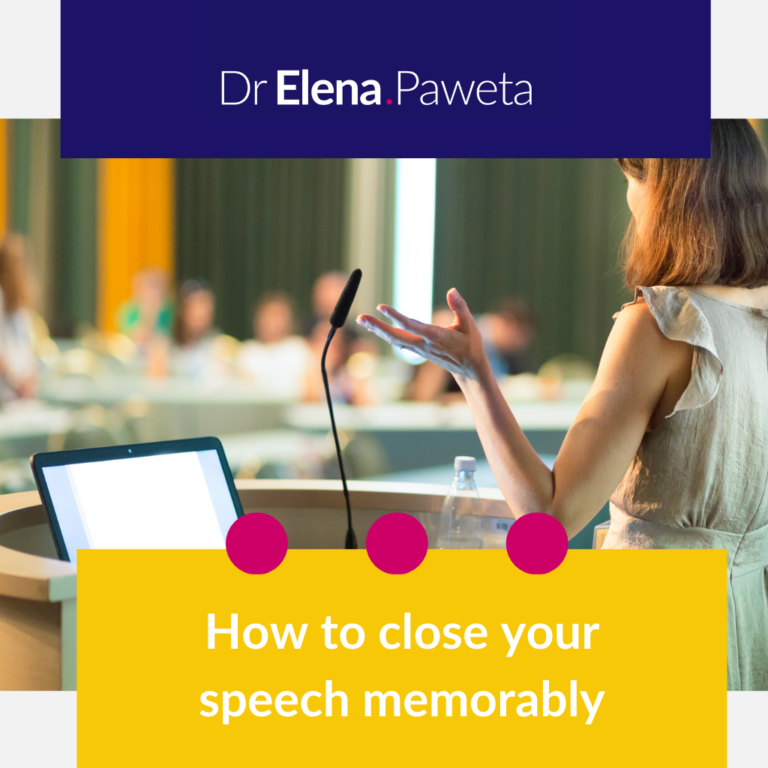How to close your speech memorably

You are on the stage.
You almost did it, your amazing talk is coming to an end…
Just a quick recap, thank you and bye-bye left. Stop for a while, don’t hurry up here! Your audience will remember what you say at the very end. Maybe that is going to be their only take away.
Use that opportunity and make your speech closing an impressive one. Take a deep breath and get ready.
How can you do that?
There are different ways to end with a bang. You can use inspirational quotes, questions, story, looping the talk, a call to action, or a strong statement. I will focus on two effective options here – looping your speech and call to action.
Looping the speech
There is a universal approach to any speech: “Tell them what you are going to tell, tell it, then tell what you just told.” I suggest using it to underline the main message. No matter how compelling you were throughout the whole talk, remember that people’s attention span is short. Return to where you started, link the beginning of your talk with the closing, review main points to help your audience with finishing the clear picture of what they learned. The most important thing is to repeat your main thesis.
Call to action
I believe the best way to end is to make a call to action. We often consider our listeners will figure out the moral and thus the action to take by themselves. That doesn’t actually happen, don’t assume they will come up with that action and take it. Move them to it. When preparing TEDx speakers, the call to action moment is the point where I usually put emphasis on.
Use powerful phrases, construct them to be clear, concise and instructional. Appeal for definite action. Calls to action like “Get started today” or “Join the community” are direct and let the listeners know what to do.
If anything is planned in the first place – let it be the ending of your talk. Think through your closing step by step, word by word, do not let it flow as it goes. Even try writing the ending of your speech first to better construct the rest. Ask yourself, what’s the main goal of your speech, what do you want your audience to think or do after you leave the stage and start from here.
Leave your listeners only when you do your best to change someone’s way of thinking or behaviour. Make sure that it is what you want them to remember. Summarise, call to action, emphasise. And moreover – leave with a taste, with an emotion and urge to do as you said.

